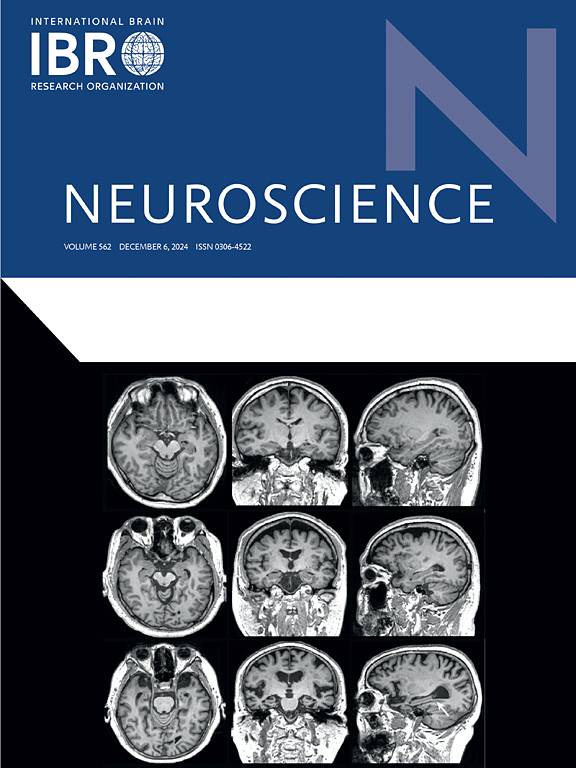Systemic inflammation response index as a predictor of 3-month functional outcomes in acute ischemic stroke patients following intravenous thrombolysis
IF 2.9
3区 医学
Q2 NEUROSCIENCES
引用次数: 0
Abstract
Background
Inflammation is a critical factor in the pathogenesis of acute ischemic stroke (AIS). The systemic inflammation response index (SIRI), which combines three inflammatory markers, serves as a comprehensive, accessible, and cost-effective tool for assessing inflammation. However, the potential of SIRI to predict the 3-month outcomes of AIS patients following intravenous thrombolysis (IVT) has not been fully explored. Given the urgency of improving patient prognostication and treatment strategies, this study aims to assess the predictive value of SIRI for AIS prognosis at the 3-month mark, providing insights that could enhance clinical decision-making and guide future therapeutic approaches.
Methods
AIS patients who received IVT from December 2020 to June 2024 were enrolled. The Modified Rankin Scale (mRS) was utilized to evaluate clinical outcomes. Propensity score matching (PSM) and logistic regression analysis were performed to investigate the association between SIRI and the 3-month prognosis in AIS patients.
Results
A total of 559 AIS patients were enrolled in the study, with 433 (77.5 %) experiencing poor outcome. Among the 83 matched patient pairs following propensity score matching (PSM), a significant association was observed between the SIRI and clinical outcomes (OR, 2.27; 95 % CI, 1.42–3.65; p < 0.001). The optimal cutoff value for predicting outcomes was identified as a SIRI level of 0.856, achieving sensitivity and specificity of 84.1 % and 51.7 %, respectively.
Conclusions
Elevated SIRI levels are indicative of an increased likelihood of poor outcomes following IVT in AIS patients, suggesting that SIRI could serve as a valuable prognostic biomarker for patient recovery.
全身炎症反应指数作为急性缺血性脑卒中患者静脉溶栓后3个月功能结局的预测因子
背景:炎症是急性缺血性脑卒中(AIS)发病的关键因素。系统性炎症反应指数(SIRI)结合了三种炎症标志物,是评估炎症的一种全面、便捷、经济的工具。然而,SIRI预测静脉溶栓(IVT)后AIS患者3个月预后的潜力尚未得到充分探索。鉴于改善患者预后和治疗策略的紧迫性,本研究旨在评估SIRI在3个月时对AIS预后的预测价值,为加强临床决策和指导未来的治疗方法提供见解。方法选取2020年12月至2024年6月期间接受IVT治疗的sais患者。采用改良Rankin量表(mRS)评价临床疗效。采用倾向评分匹配(PSM)和logistic回归分析探讨SIRI与AIS患者3个月预后的关系。结果共纳入559例AIS患者,其中433例(77.5%)预后不良。在倾向评分匹配(PSM)后的83对匹配患者中,SIRI与临床结果之间存在显著相关性(OR, 2.27;95% ci, 1.42-3.65;p & lt;0.001)。预测结果的最佳截断值为SIRI水平为0.856,灵敏度和特异性分别为84.1%和51.7%。结论SIRI水平升高表明AIS患者IVT后不良预后的可能性增加,表明SIRI可以作为患者康复的有价值的预后生物标志物。
本文章由计算机程序翻译,如有差异,请以英文原文为准。
求助全文
约1分钟内获得全文
求助全文
来源期刊

Neuroscience
医学-神经科学
CiteScore
6.20
自引率
0.00%
发文量
394
审稿时长
52 days
期刊介绍:
Neuroscience publishes papers describing the results of original research on any aspect of the scientific study of the nervous system. Any paper, however short, will be considered for publication provided that it reports significant, new and carefully confirmed findings with full experimental details.
 求助内容:
求助内容: 应助结果提醒方式:
应助结果提醒方式:


